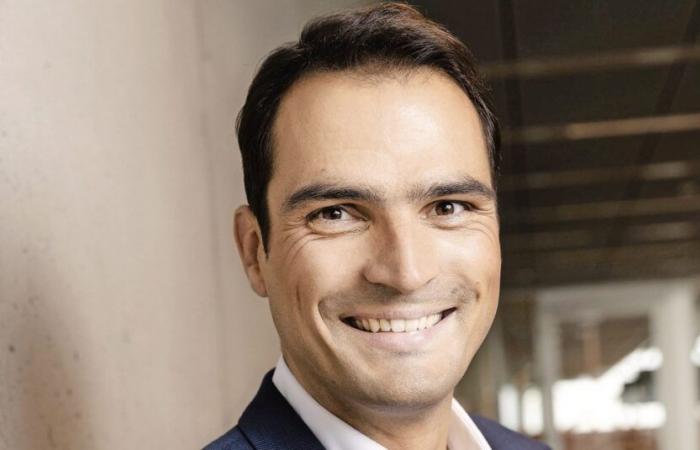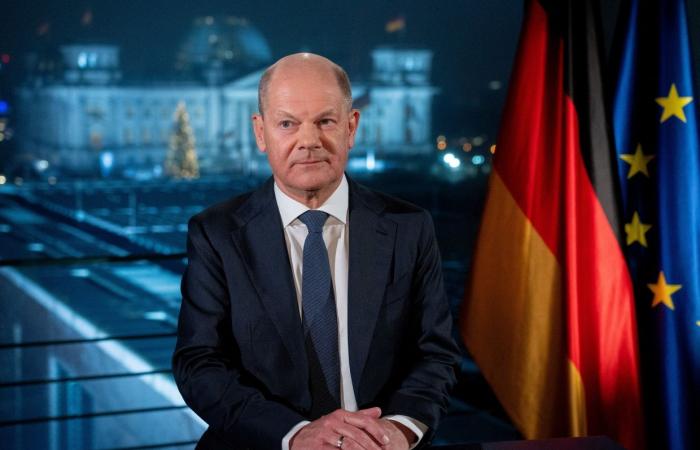Der Umgang mit der AfD ist seit Jahren eine große Herausforderung für alle Journalisten. Nach meiner Auffassung hat die Strategie des Totschweigens, Tabuisierens, Ignorierens, Nichtbeachtens und der Pauschalkritik nachweislich nicht funktioniert. Die AfD ist bundesweit in den Umfragen zweitstärkste Partei. Deshalb habe ich in diesem Jahr mit TV-Duellen wie dem zwischen Björn Höcke und Mario Voigt und dem zwischen Alice Weidel und Sahra Wagenknecht als journalistischen Zugang die argumentative Auseinandersetzung gewählt. Wenn nun Elon Musk als einer der einflussreichsten Menschen der Welt bei uns erstmals ausführlich begründet, warum er den Standort Deutschland in Gefahr sieht und warum er ausgerechnet die AfD für den letzten Funken Hoffnung für Deutschland hält, hat das einen großen Nachrichtenwert. Mit meiner entschiedenen Gegenrede, in der ich darlege, warum Musk sich in der AfD irrt, wollte ich eine Diskussion anstoßen. Und das ist gelungen. Wir haben eine weltweite Debatte über die Frage ausgelöst, welche Konsequenzen es hätte, wenn eine in Teilen rechtsextreme Partei in Deutschland Regierungsverantwortung bekäme. Sowohl Musks Thesen als auch meine Gegenargumente wurden in so gut wie allen deutschen Medien sowie in bedeutenden internationalen Zeitungen von der „New York Times“ über „Le Figaro“ bis hin zur „Times of India“ zitiert. Damit haben wir einen Beitrag zur politischen Meinungsbildung geleistet, auf den wir stolz sein können.
Wenn man sich Reaktionen hierzulande anschaut, wird das nicht als Pro und Kontra begriffen, sondern als „übergriffig und anmaßend“, wie Friedrich Merz sagt. Oder als Einmischung von außen, wie die Bundesregierung es bezeichnet. Die Bürger entschieden, wie es weitergeht, nicht „Inhaber sozialer Medien“, sagt Olaf Scholz. Robert Habeck meint, Musk wolle Europa schwächen, das habe „Logik und System“. Was sagen Sie dazu?
Als der Milliardär George Soros im Europawahlkampf 2019 eine Wahlempfehlung für die Grünen veröffentlicht hat, sah Robert Habeck darin kein Problem. Und wenn jetzt der Generalsekretär der SPD, Matthias Miersch, sagt, der Gastbeitrag von Musk sei „gefährlich und beschämend“, dann kann ich nur warnen: Gefährlich wird es, wenn ein Spitzenpolitiker definieren will, welche Meinung eine Zeitung drucken darf und welche nicht. Wo war der Aufschrei des SPD-Generalsekretärs, als die „Zeit“ im Jahr 2021, also bereits nach der Annektierung der Krim, einen Gastbeitrag von Wladimir Putin gedruckt hat – übrigens ohne jede kritische Erwiderung? Und hat Matthias Miersch schon vergessen, dass Bundeskanzler Scholz 2022 in einem Gastbeitrag in „Le Monde“ unmittelbar vor der Präsidentschaftswahl den Franzosen empfohlen hat, für Emmanuel Macron zu votieren? Diese Doppelmoral empfinde ich als unerträglich.
One point of criticism is that Elon Musk pursues his own interests as an entrepreneur. In the USA he has become chief advisor to President-elect Donald Trump. Musk’s business and political interests mix. How do you rate the fact that he wants the AfD in government in Germany?
The influence that Elon Musk has makes the debate even more interesting. After all, Musk is one of the few international investors who are still interested in Germany as a business location, for example with his Tesla factory in Brandenburg. And if he publicly expresses the wish that the AfD would co-govern Germany in the future, that is also covered by freedom of expression. However, he completely ignores the fact that a withdrawal of the Federal Republic from the European Union and the European internal market would be a catastrophe for the German economy.
Maybe he has an interest in weakening the EU.
He may have this interest. But our job as journalists is to present opinions, even those that do not correspond to our own or our values. So we printed a guest article in the “Welt” by the Slovenian philosopher Slavoj Žižek, who openly professes communism. We had Sahra Wagenknecht and Gregor Gysi as guest authors. We want to initiate debates, we stand for plain language, context and freedom of expression.
The federal chairman of the German Journalists’ Association, Mika Beuster, and the Mainz journalism professor Tanjev Schultz believe that they have broken a taboo.
The fact is that fewer and fewer people in Germany have the feeling that they can freely express their political opinions. According to a survey by the Allensbach Institute for Demoscopy and the Media Tenor Institute at the end of 2023, the perceived freedom of expression in Germany has reached its lowest level since the 1950s. Only 40 percent of citizens are convinced that one can express one’s opinion freely and blame the media climate primarily for this. It is noticeable that Green Party voters are the least likely to see a problem. I am also observing a narrowing of the discourse in many media outlets in Germany. I think that’s worrying. But fortunately there are other voices like that of the “economic wise man” Veronika Grimm. She expressly welcomed the debate triggered by the Musk article in the FAZ. There is no point in suppressing discussion about the AfD and its issues. I can only agree with that.
How did you come across Elon Musk’s guest post?
Our guest authors are fundamentally entitled to the genesis of their contribution being subject to confidentiality. The FAZ probably feels the same way with its “foreign pens”.
True. But one could speculate that Axel Springer, as a global media company with a particular interest in the USA, invites Elon Musk as a guest author and thereby also combines its own interests. For example, when CEO Mathias Döpfner gets involved.
We made the decision to print Elon Musk’s text after intensive discussions with editorial representatives, such as the editorial committee, within the editor-in-chief. And nowhere else. It was entirely my decision to respond to Elon Musk’s guest article with my very decisive response.
The opinion leader of “Welt am Sonntag”, Eva Marie Kogel, then resigned. Can you understand that?
I respect Ms. Kogel’s decision.
Weren’t you surprised by how simply Elon Musk put it? He overlooks the essence of the AfD – that it wants to overcome our democracy. At best, his perception of the conditions in Germany is truncated. Not to mention the loyalty to Russia, the anti-Americanism and the intolerance of this party.
That actually surprised me, and in my reply I expressed that he overlooked many aspects. But its lack of complexity in this context is in some ways very enlightening for the audience. That’s why we enlightened and worked journalistically in the best possible way.
Musk is not campaigning for any party, but for the partly right-wing extremist AfD. One could say that someone who supports the AfD, even if it is Musk, should not be offered a platform.
I think the argument is weak. My understanding of journalism on this issue is influenced by Voltaire, who once said: “I may have a different opinion than you, but I would give my life so that you could express your opinion freely.” As long as an opinion is not illegal, we have to endure it in democracy, even if, as I said, it does not correspond to our own. In its basic values, which were defined by the publisher’s founder Axel Springer, our company rejects right-wing extremism and extremism of any kind and is committed to Europe. We in the “Welt” have long been critically concerned with the AfD in research and commentary. But we shouldn’t pretend that the AfD and its issues don’t exist. After all, we are journalists and not activists.
Elon Musk has his own powerful platform with X. He directs this specifically against the press. He attacks the “established” media, according to the motto: What they report is worth nothing. You can only find out the truth directly at Alice Weidel’s spokesman announces a conversation between Musk and Weidel. The supposedly richest man in the world has an agenda.
Musk relies on one-way communication, which we as journalists must challenge. At It must be in the interest of journalists to get involved. For this reason I chose the TV duel between Björn Höcke and Mario Voigt. There, the AfD’s far-right could not simply spread without being critically questioned. In the end, Höcke was disenchanted. We’ll build on that. We will develop the “world” into the leading debate medium that sees itself as an alternative to the one-way communication of social media channels. We will continue to publish what we think is relevant and worthy of discussion – whether a government or a party likes it or not.







